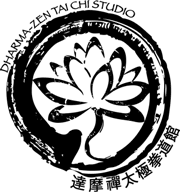Martial Arts in Chinese are called Wu Shu. Martial Arts virtue in Chinese is called Wu De. The Wu character (?) is made up of two component characters Jr and Ge (??). Jr Ge means stop war. Just like “The Art of War”. This book, written by SunZi (Sun Tzu), is one of the oldest books on military strategy in the world. SunZi said, “…So it is said that if you know your enemies and know yourself, you will fight without danger in battles. If you only know yourself, but not your opponent, you may win or may lose.
If you know neither yourself nor your enemy, you will always endanger yourself. If you know both yourself and your enemy, you can come out of hundreds of battles without danger.” And “…one hundred victories in one hundred battles is not the most skilful. Seizing the enemy without fighting is the most skilful.”
In Chinese martial arts every school advocates that martial arts practitioners learn martial art to promote body and mind/spirit health. Martial arts creed is that martial arts are for self-defence not for bullying the weak. This is because many Chinese martial arts schools spring from Buddhist or Taoist and Traditional Chinese Medicine philosophy. All these philosophies assert that the human body has limits yet is still a part of the cosmos. Body and mind are part of an undividable whole so through body and mind training the practitioner can let his or her spirit connect with the Universe. They then convert to the “Tien, Ren Ho-Yi” (heaven/sky/ Universe/nature/mystical power, human-being together) plane of existence where nature and man combines into one. So resorting to violence and trying to outdo others are against the martial arts’ ultimate purpose. In ancient times before people had guns to kill each other martial arts was a skill that was very proficient at hurting people. Most martial arts teachers looking to recruit new students would first observe each student’s character and behavior for a while then decide whether or not to let the student become an indoor student. Only indoor students were given the full breadth of training and became a part of the martial art’s “family” structure i.e. Master as Patriarch, best student and heir as Big Brother.
Martial Arts virtue (Wu De) is the spirit of Martial Arts (Wu Shu). In Chinese Wu Shu it has been the practice of several thousand years to worship Wu De. It is a good tradition. The ancient Chinese called “Jr, Ren, Yong” (wisdom, benevolence and courage) the three virtues. With “Jr” a wise man is never confused with “Ren” a compassionate person never worries and with “Yong” a brave man never fears. So Wu De exemplifies these three virtues.
Lao Zi, in the , taught us thus in “The virtue of not-contending”:
The brave soldier is not violent;
The good fighter does not lose his temper;
The great conqueror does not fight (on small issues);
The good user of men places himself below others.
–This is the virtue of not contending,
Is called the capacity to use men,
Is reaching to the height of being
Mated to Heaven, to what was of old.
–danny
